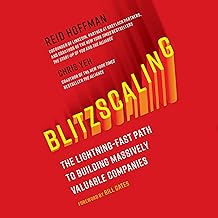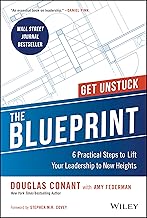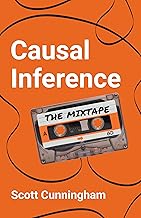
Blitzscaling: The Lightning-Fast Path to Building Massively Valuable Companies
Reid Hoffman, Chris Yeh, et al.
4.5 on Amazon
7 HN comments

The Most Important Thing: Uncommon Sense for The Thoughtful Investor
Howard Marks, John FitzGibbon, et al.
4.6 on Amazon
7 HN comments

Getting Past No: Negotiating in Difficult Situations
William Ury
4.6 on Amazon
7 HN comments

Sell or Be Sold: How to Get Your Way in Business and in Life
Grant Cardone
4.7 on Amazon
7 HN comments

So You Want to Talk About Race
Ijeoma Oluo
4.7 on Amazon
6 HN comments

COVID-19: The Great Reset
Klaus Schwab and Thierry Malleret
3.7 on Amazon
6 HN comments

Great by Choice
Jim Collins, Morten T. Hansen, et al.
4.6 on Amazon
6 HN comments

Imperialism the Highest Stage of Capitalism
Vladimir Ilich Lenin
4.8 on Amazon
6 HN comments

The Professional Chef
The Culinary Institute of America (CIA)
4.8 on Amazon
6 HN comments

Options as a Strategic Investment: Fifth Edition
Lawrence G. McMillan
4.7 on Amazon
6 HN comments

Trading: Technical Analysis Masterclass: Master the financial markets
Rolf Schlotmann and Moritz Czubatinski
4.5 on Amazon
5 HN comments

The Blueprint: 6 Practical Steps to Lift Your Leadership to New Heights
Douglas R. Conant
4.6 on Amazon
5 HN comments

Causal Inference: The Mixtape
Scott Cunningham
4.7 on Amazon
5 HN comments

Trillion Dollar Coach: The Leadership Playbook of Silicon Valley's Bill Campbell
Eric Schmidt, Jonathan Rosenberg, et al.
4.6 on Amazon
5 HN comments

No Rules Rules: Netflix and the Culture of Reinvention
Reed Hastings and Erin Meyer
4.6 on Amazon
5 HN comments
mjirvonMar 16, 2020
Economists also have a big causality literature which might be less accessible for HN folks but I think is still interesting and important. For a good intro to all that, I suggest Scott Cunningham’s “Causal Inference: The Mixtape.”[2]
[1] https://www.indiebound.org/book/9780465097609
[2] https://scunning.com/causalinference_norap.pdf
PilsonJuly 12, 2020
nkurzonMay 24, 2017
P.S. I enjoyed the way you formatted and responded to your parent comment.
Thanks, the style is sometimes referred to as "interleaved" or "inline", as opposed to "top posting" and "bottom posting": https://brooksreview.net/2011/01/interleaved-email/. It was the norm for early online communications, but has mostly fallen out of favor. I think it works very well for some situations, although it too is surprisingly controversial: https://news.ycombinator.com/item?id=5233428.
nkurzonAug 8, 2018
Unlike his previous books this is intended for general audiences rather than practitioners. It offers a good overview of Causal Inference, as well as a personal take on why there is such a split between his graphical approach and others such as SEM.
Overall, Pearl is unabashedly optimistic that statistics is finally on the verge of a "causal revolution", and this book tries to describe what that means. I'd recommend it highly, either as standalone or as background to accompany his more technical works.
alilleybrinkeronMar 8, 2021